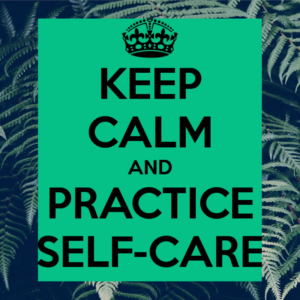How To Develop Your Own Self-Care Practice.

We all need some break with real time to enter a more reflective and rest centred space. There is a deep loss that our modern society has undergone and many of us are completely unaware of it. For tens of thousands of years human beings were sustained and nourished by what psychotherapist Francis Weller calls, “the primary satisfactions”. These were practices aimed at soothing the psyche and creating intimacy with our inner and outer worlds so that we could come back to our daily lives with more peace, perspective and energy. They are of primary importance and yet today the fast pace of modern life means that many forgo the essential time that we need to rest, relax, and come back to centre. We literally do not make much time to tune into ourselves.
Especially the international expat could benefit from a sense of self-care, being far away from the familiarity of cultures, traditions and family. Many of my patients in my English speaking psychotherapy practice in Berlin have sacrificed these ties of family and community for a new life and the promise of personal development. It is a perilous journey that can bring many fruits and new and rich understandings of oneself and the world. But the price can be high. Patients in my therapy office are often not sure that they themselves can partake in many self-care actions to improve their well-being.
Here are some ways we can take back a sense of our own strength and add ritual and self-care back into our lives.
-
Practice Mindfulness
Mindfulness is a powerful mind-training, which allows us to take a more active role in observing the capriciousness of our mental lives. Most of us live in a state of high reactivity and mindfulness training brings us back to a place of observation and being, rather than acting and getting caught up. Luckily nowadays there are numerous apps and courses that one can find to support the development of this practice and thanks to scientific research the benefits of mindfulness are no longer only accepted by the more esoterically minded but also by medical doctors and other health providers. I usually recommend that all of my patients have a running mindfulness practice as they undertake a therapy with me.
-
Go For a Walk
The literature on the benefits of physical exercise on depression is extensive and the research publications are now pretty much all in accordance that physical exercise is at the very least beneficial as an adjunctive treatment, if not as a stand alone treatment, in the treatment of mild depression and anxiety. Take a walk, join a gym, go dancing, dance alone in your room, do a YouTube video for 5mins…whatever you do, just move daily.
-
Befriend Solitude
Developing a sense of solitude is also important for self-care. For most of us it can be a challenge to adapt to a new country and it usually means a time when we are far from friends and family. How can we change our relationship to our solitude from one of fear and shame to one of increased confidence and creativity? The answer that Sara Maitland gives in her ode to being alone called aptly “How To Be Alone” is face your fear. Her advice is in line with a CBT (Cognitive Behaviour Therapy) approach in that phobias and other fears are directly faced in order that we become “desensitized” to them. In this spirit you may want to study the benefits of being alone (see above book) and challenge yourself.
-
Do Therapy- Self Therapy
The role that therapists play is as a facilitator to deeper thoughts and understandings about ourselves, allowing us a greater depth of awareness, which allows us to see choices ahead for us. Some of us living in Berlin can’t take part in a therapy for various different reasons including time and finances. In less acute cases there are many great tools for self-therapy, including CBT workbooks and YouTube tutorials. https://www.youtube.com/watch?time_continue=29&v=AoqtKbl3nIo
-
Cultivate a Ritual in your Life
Examples of different ceremonies and rituals throughout human cultures show us that the notion of self-care is not limited only to modern life. Communities coming together around ritual have been an indelible aspect of human history. We can also practice this kind of reflection time in a solitary way, as a way to connect to our deepest sense of ourselves and create more space for rest and creativity. The offering of smoke in prayer is central to ceremonies in traditions around the world. In a pipe ceremony for example you have a powerful combining of elements with fire to symbolize the balance of life. The pipe ceremony is a sacred ritual for connecting the physical and the spiritual. Fire can mesmerize us with its flicker and induce a cleansing aspect to any ritual you may do. The simple act of lighting a candle or burning some incense can connect us to a calming life force, which connects us with all of our ancestors who spent much time around a fire. The act of lighting a candle, writing in a journal by candle light, or putting one beside the bath before you bathe signifies a call to the senses, and an invitation to be fully present.

Perhaps this article will help you reflect on your own ideas of self-care and what is important for you in order to feel taken care of. What do you do on a daily basis for a healing connection with yourself? What would you like to incorporate into your daily routine?
We are at a critical junction on this planet where more and more of us are coming to understand the importance of healing and self-care for the sake of all life and the future of our own and other species. Every day we have an opportunity to move out of negligence and destruction towards peace and healing.

